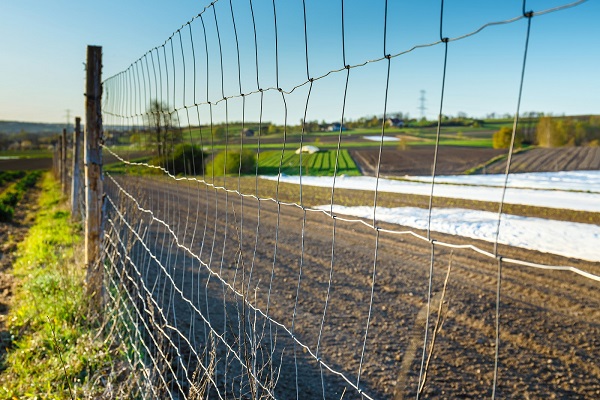Agricultural Fencing: Property Line and Fence Laws in Tennessee

There are thousands of miles of agricultural fencing in Tennessee. These fences represent ownership and can be a potential cause of disputes among property owners whose land the fences separate. Conflicts usually arise due to fence location, construction, and maintenance issues. Should you be in the middle of an agricultural fencing issue, this refresher on Tennessee’s property line and fence laws might help resolve it.
Tennessee Fence Law 101
According to Tennessee fence laws, a partition fence refers to a fence separating two properties. Both property owners are responsible for the partition fence even if only one party needs to have a fence; this means that repair and maintenance costs are to be divided among the two parties. State laws stipulate that if push comes to a shove, you may have to pay for a fence you neither need nor want. There are exemptions, however: if for example, the partition fence separates an agricultural land from a non-agricultural one, the owner of the latter may submit a document disclaiming any responsibility for the partition fence built.
Resolving partition fence disputes
With so many miles of agricultural fencing surrounding properties across Tennessee, disputes will inevitably arise. The state prescribes an out-of-court settlement procedure to help property owners save on time and litigation costs. If neighbors cannot settle amongst themselves the amount to be shared for building or repairing the fence, either party can ask a judge to step in and mediate. The judge will then assign three disinterested parties to assess the fence and come up with the final construction or repair amount.
Local ordinances and zoning rules affecting agricultural fencing
Tennessee properties are subject to local zoning rules, building ordinances, and homeowner’s association guidelines on top of the state’s partition fence laws. For example, while agricultural fencing in Nashville generally does not require permits, there are stringent regulations as to where a fence may be constructed on your property, the fencing materials that could be used, and as to how tall it can be. It’s always best to check in with your local planning office before starting any construction work.
What to do in case a neighbor’s tree extends over to your property
As a property owner, you have full control over your property. This means that if a neighbor’s tree extends over to your land, you can cut it back at your own expense. Tennessee courts have ruled that no landowner has a cause of action when branches from a neighbor’s healthy tree hang over their land. Remember not to trespass onto the neighboring property to trim, leave any debris on the neighboring property, or cut beyond the property line.
State laws on agricultural fencing are always subject to change through the passage of new legislation, higher court rulings (including federal decisions), ballot initiatives, and other means. Always do your research to make sure the information you have is up to date.
Straight Shooter Game Fencing works with property owners throughout the US to provide the best agricultural fencing at competitive prices. We guarantee a professional fencing installation on your property no matter the size. No job is too big or too small and no terrain is too rough. Get in touch with us to know more.